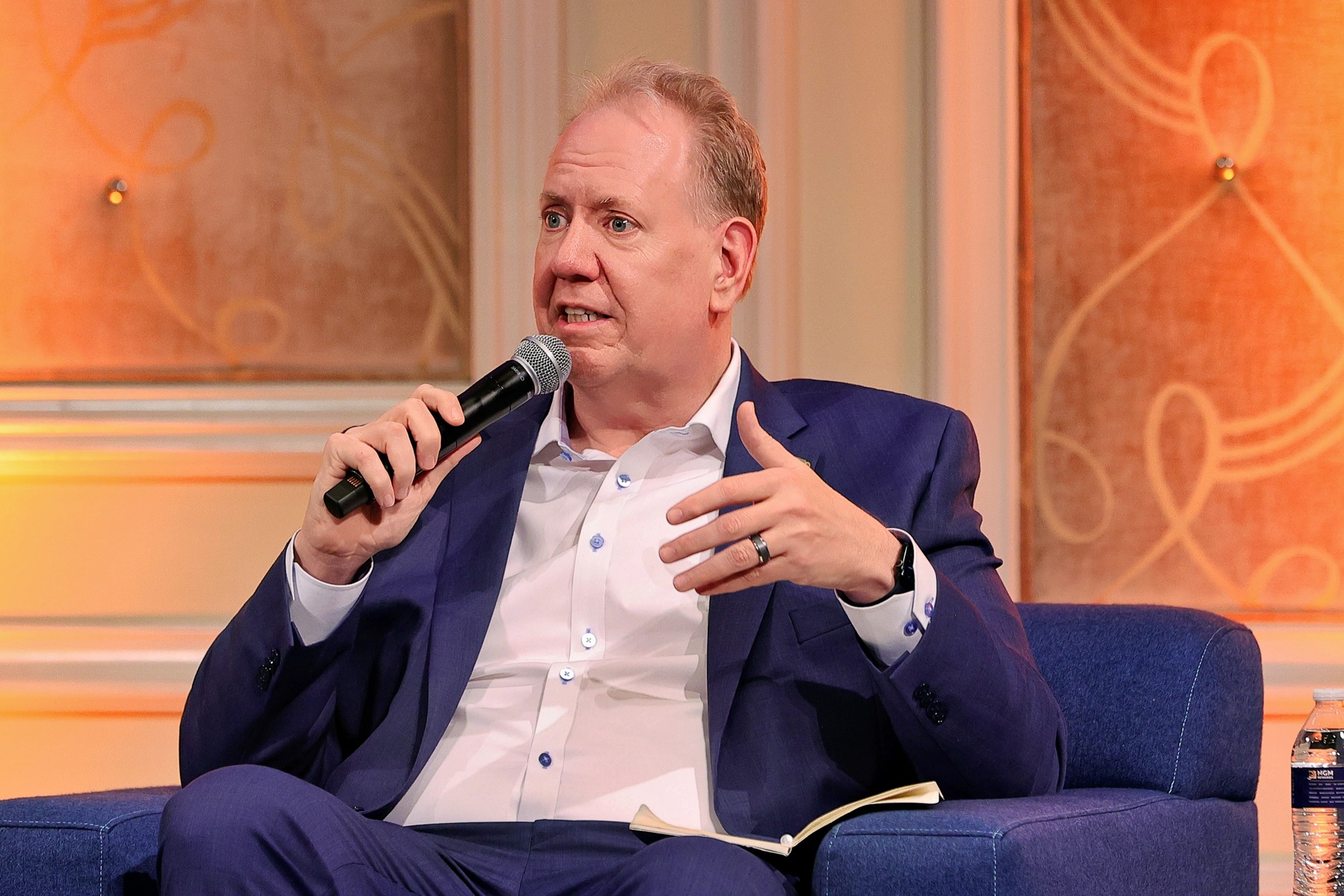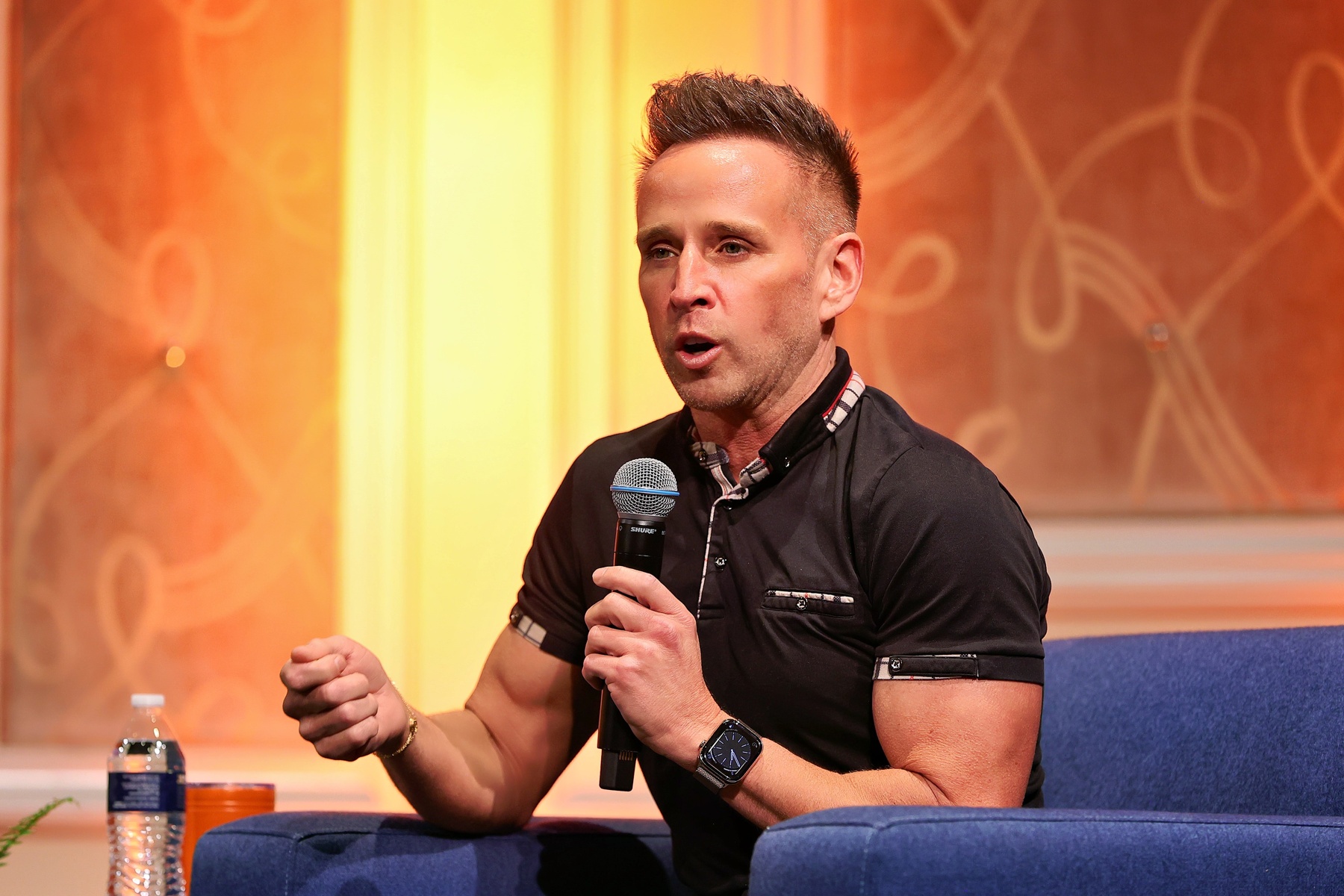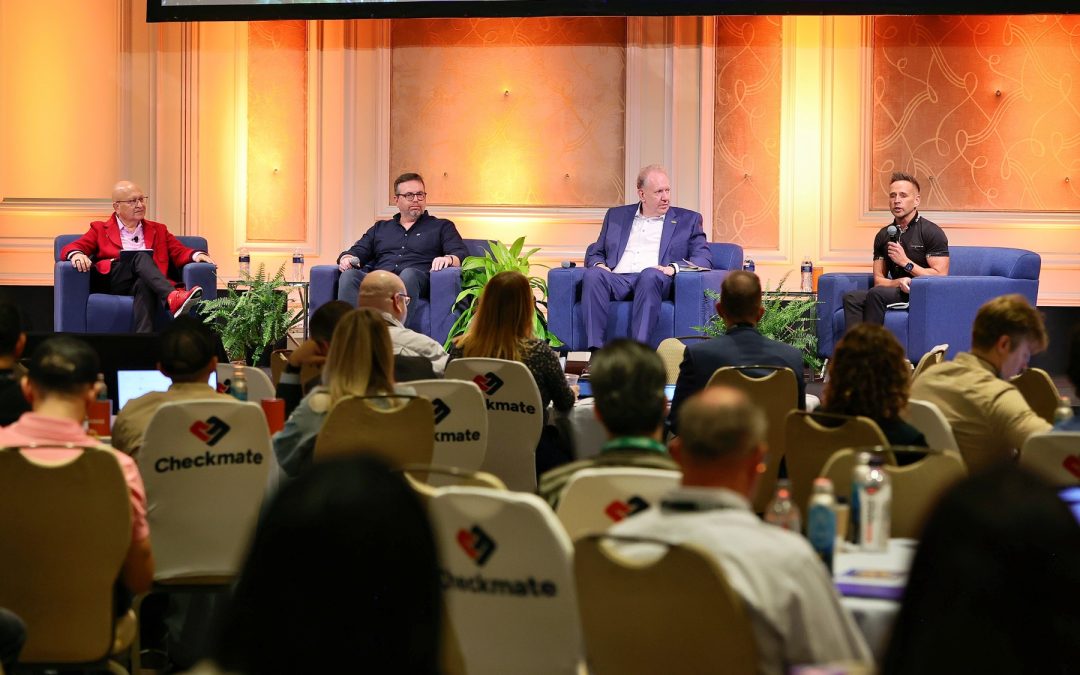The digitization of restaurants continues to happen at a rapid rate, meaning restaurant leaders have to keep their heads on a swivel, or else get left behind.
Christophe Poirier, chief concept officer for KFC’s spin-off Saucy, gave that sentiment Tuesday during a panel at the Food on Demand Conference, moderated by Fred LeFranc, CEO of Results Thru Strategy. Covering topics from off-premises strategies to online sales, panelists dug into their evolving tech stacks, which show no sign of slowing down.
“You have to be aware of how quick change is coming,” Poirier said. “If you look at what’s outside, the rate of change is exponential, which means that business as usual is not the right step. You have to keep the same pace, and that’s the challenge that I give my team.”
Saucy, a concept centered on chicken strips and several sauces, was launched by Yum Brands in 2024. For it to keep pace digitally, Poirier said there’s been a conscious effort to balance technological improvements for the benefit of customers and employees.

Adam Noyes, chief operating officer, at Potbelly
“The best way to delight your customers is to delight your team members,” Poirier said. “Most of the technology that you see produced has been about making things easier for the customers. I like to take a step back and remember that the team member experience always defines the guest experience. The name of the game for that is integration.”
This focus has been especially important for Saucy, as Poirier said about 60 percent of the brand’s sales have come through delivery apps, digital ordering or drive-thru.
Joining Poirier in the conversation were panelists Adam Noyes, Potbelly chief operating officer, and Jason Rusk, executive vice president of restaurant operations at Wonder. Like Poirier, Noyes said he too is pushing for digital upgrades to meet off-premises demand and online ordering.
At nearly 100 of its more than 420 locations, Potbelly kitchens made what Noyes called shift from analog to digital.
“What the customer is looking for with the in-shop experience is friendly teams, speed of service and great food,” Noyes said. “When we think about the digital experience, there’s a lot of commonalities there. When that’s what you’re trying to deliver, the system you put in place is important.
“At Potbelly, we call it our digital kitchen,” said Noyes. “It’s really taking that analog space and building the technology into the lines. Adding kitchen display systems in our shops. That type of transformation makes it so much easier for the employees and it builds consistency. We’ve seen both accuracy scores and time performance scores improve.”
Noyes said the digital kitchen shift is one of three Potbelly projects to improve its digital position. The brand is also retooling its loyalty program app and transitioning its POS system, partnering with the developer Toast.
“It’s about preparing for what we need to be in the future,” Noyes said. “We needed a POS with more flexibility. So, when making that decision, it’s about selecting the platform you want for the next five-plus years.”
In Wonder’s case, catering to off-premises orders and digital platforms was something incorporated from the very beginning. The brand is the combination of several restaurant concepts, with orders all made out of a single kitchen. The company, which in late 2024 acquired Grubhub, also handles its own delivery straight to the customers.

Jason Rusk, EVP of Restaurant Operations, at Wonder
“Wonder is a fully-integrated app for dinner-time,” Rusk said. “We own the marketplace, restaurant and delivery, and it’s total transparency for consumers through the use of technology. One thing that e-commerce does so well, with the likes of Amazon, is it provides a one-stop shop for everything you need. The advantage we have is providing that type of experience in a restaurant format.”
Along with its digital offerings for customers, Rusk said being fully-integrated means its kitchen was also designed with technology in mind.
“Our digital marketplace feeds directly to our back systems,” Rusk said. “We have inventory tracking, so when someone places an order at one of our locations, we know exactly how much was sold and how much replenishment is needed. It’s not just customer facing, it goes to the back office.”
Wonder opened its first brick-and-mortar location in 2023 and now has more than 40 locations open in the northeast. Rusk expects 90 units to be open by the end of 2025.
The annual Food On Demand Conference wrapped up Wednesday, May 7, at the Bellagio in Las Vegas.


